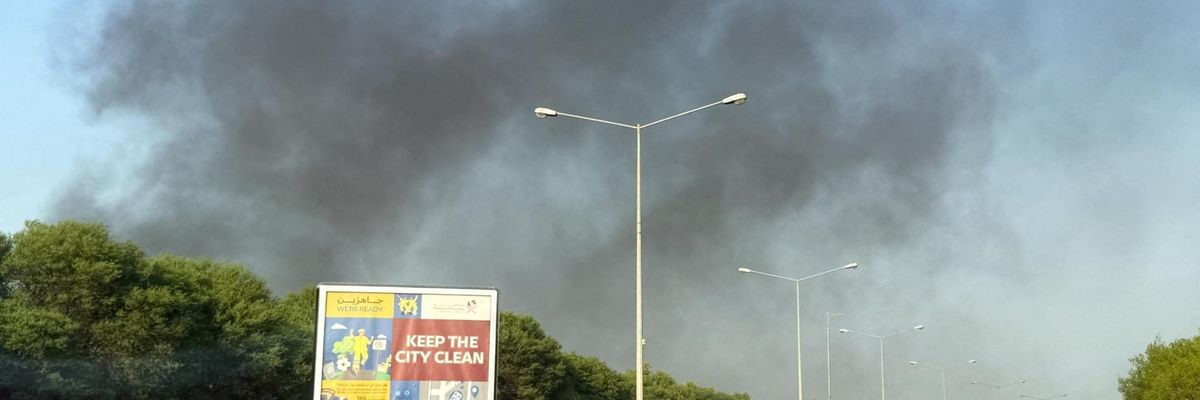Editor's note: We are updating this article as this story develops. Last updated at 2:30 pm Eastern Time.
Israel launched airstrikes targeting Hamas leaders in Doha, Qatar, a major non-NATO ally that hosts the largest U.S. military base in the Middle East, which houses at least 10,000 American troops.
The attack appears to be the first ever Israeli airstrike on the territory of an Arab Persian Gulf state. The bombing killed several Hamas staffers, but the group's negotiating team survived, according to Hamas sources. The strike killed at least one member of Qatar's Internal Security Forces and injured others, according to Qatar's Interior Ministry.
Hamas officials have maintained a presence in the Qatari capital since 2011, when the U.S. requested that Qatar set up a back channel with the group. The U.S. embassy in Doha urged American citizens who live and work in the city to shelter in place following the strikes.
A Western diplomat told the Washington Post that American allies in Doha did not receive advance notice about the strike. The Israeli prime minister’s office said the attack was a “wholly independent” operation, adding that Israel takes “full responsibility” for it. But anonymous Israeli officials told the Jerusalem Post that the U.S. knew that the attack was coming.
White House spokesperson Karoline Leavitt condemned Israel's attack, telling reporters that the move "does not advance Israel or America's goals." Leavitt also noted that President Trump spoke with Qatari officials and "assured them that such a thing will not happen again."
If the U.S. approved the strike ahead of time, it would deal a major blow to American credibility in the region, according to Trita Parsi, the executive vice president of the Quincy Institute, which publishes Responsible Statecraft. “What’s the value of having American protection through the presence of an American base if the United States greenlights another country attacking you,” Parsi said, adding that “America shows no willingness to constrain the one country that actually constitutes a threat to” Gulf states.
The attack will likely throw a wrench into talks aimed at securing a ceasefire in Gaza. A Qatari diplomatic source told Responsible Statecraft that Hamas officials were meeting to discuss an American ceasefire proposal at the time of the strike. “As has happened before, the Israelis undermined hopes for peace, further prolonging the war and complicating efforts to bring back the hostages,” the official said.
Since Hamas attacked Israel on Oct. 7, 2023, Israeli forces have targeted the group’s leaders and allies across the Middle East, launching airstrikes in Gaza, Lebanon, Syria, Yemen, Iran, and now Qatar. In July 2024, Israel assassinated Ismail Haniyeh, then Hamas’s lead negotiator in ceasefire negotiations, while he was visiting Iran for a state funeral.
Leaders from across the Arab world moved quickly to condemn Tuesday’s attack, which has sent a shockwave throughout the region. “Striking countries that are mediating the conflict represents a new form of escalation,” argued Dareen Khalifa of the International Crisis Group. “Israel is currently engaged in war in at least six countries; what comes next? It is difficult to entirely dismiss any possibilities.”
Nick Cleveland-Stout contributed reporting.
- Can Qatar Help Prevent a U.S.-Iran War? ›
- The death of neutrality? ›
- Is Israel forcing Trump to be the capitulator in chief? | Responsible Statecraft ›
- After bombing, time to demystify the 'Qatar lobby' | Responsible Statecraft ›
- Tucker Carlson to Qatar foreign minister: why did Israel bomb you? ›
















